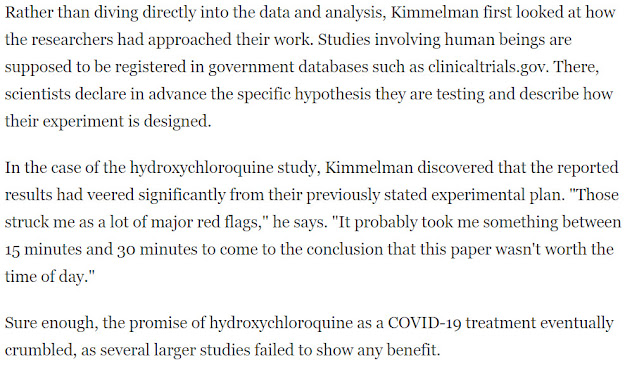How to use in class:
1. How do scientists assess the quality of research? By reading pre-registered reports and pre-prints: The report explains pre-prints and pre-registration! The good: The research gets out faster. Reviewers can compare pre-planned analysis to the actual analysis. The bad: The media gets too excited about pre-prints.
The report describes the totally overwhelming number of pre-prints for COVID-19 related research:
One of the scientists interviewed in the piece describes how he used pre-registered information to assess a COVID-19 research paper:
2. How do scientists assess the quality of an article: By the author and their academic affiliation. The report describes the bias that may exist when we lean on author/affiliation heuristics in assessing science.
3. Science needs world-wide collaborations, and America needs foreign-born scientists. One scientist describes how international collaborations are sometimes built up post-docs from foreign countries working in the United States. Given the unstable situation in America regarding international students and work visas, this is especially pertinent. Such policies aren't just biased and isolating, they slow down innovation.
4. All of the lessons our students are learning from their psychology professors about how science works in psychology apply outside of psychology as well! This may be obvious to a person with a Ph.D. in psychology. However, I don't think that our students always realize this. Emphasizing this point is important for helping build their science literacy.





Comments
Post a Comment